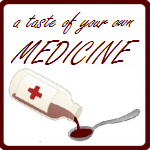 It’s weird seeing a mother waiting to deliver her baby while watching Nickelodeon on TV. That’s because she’s 17 years old and is having her second child. I’ve met several women who were 30 years old and having their sixth child after ten pregnancies. I think this mother is on that track.
It’s weird seeing a mother waiting to deliver her baby while watching Nickelodeon on TV. That’s because she’s 17 years old and is having her second child. I’ve met several women who were 30 years old and having their sixth child after ten pregnancies. I think this mother is on that track.
The Centers for Disease Control and Prevention (CDC), which is an excellent resource during your medical career, states that about four percent of teenage girls give birth each year and that these births comprise 10 percent of annual births. Even though the United States is at its lowest ever recorded levels, its teen birth rates are still much higher compared to other developed countries.
Half of teen moms don’t graduate high school. Their children are 33 percent more likely to become teen moms, and so the cycle continues. Teen pregnancy is an emotional and financial burden not only to the family, but to taxpayers at a cost of $9 billion annually.
This has even caught the attention of President Obama, which led to the President’s Teen Pregnancy Prevention Initiative (TPPI). The goal of the initiative is to increase awareness and increase teens’ access to resources that will help prevent teen pregnancy.
So, what can you do as a health care provider?
- Counsel patients in a non-threatening and non-judgmental manner. Make sure your patients have the opportunity to ask questions. They probably have things they want to discuss that are too embarrassing for them to bring up at school or at home.
- Talk about safe sex, STIs, and contraception in a positive and encouraging manner that allows open ended conversation.
- Make sure that you describe the advantages and disadvantages of each form of contraception and work together to see which one fits best for them. Diagrams, pamphlets and websites can aid in the explanations.
- Counsel patients on how to correctly and consistently use contraception.
My experience has taught me that most of the teens, and even some in their 20s, that I encountered in clinic did not know the word “contraception.” They were having intercourse and stated that they did not want to become pregnant, but weren’t using birth control. I realized that many of these teens did not have a way to learn about safe sex. Not every school provides sex education and some families forbid speaking on the topic. So, where can they obtain this information? They get it from friends, media, and the doctor. You have an important role of presenting accurate and up to date information.
No matter what the age of your patient, you must offer support, trust and respect.
A Taste Of Your Own Medicine is a column that gives you a taste of medicine. It focuses on important and interesting topics relating to medicine and being a medical student.
